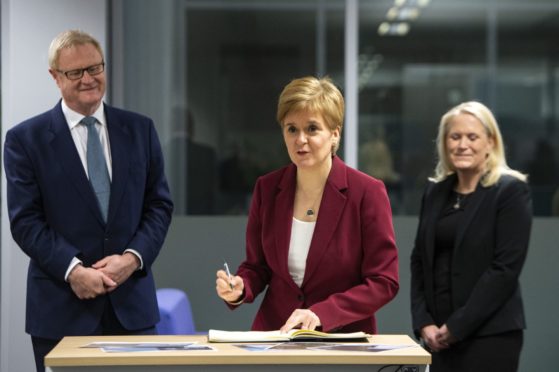This has not been a great year for politicians. From Covid to Brexit and almost everything else in between, the headlines have been gloomy, doomy and angry.
Cussed and accursed, 2020 draws to a close in much the same fashion it began. Britain is, figuratively, at war with the EU and perhaps, soon, literally with France. There are warnings of vegetable and medicine shortages, of a return to panic buying, and of fishing vessels repurposed as gunboats. Alarmingly, Boris Johnson has announced he is taking control of emergency planning from Michael Gove.
The scale and range of the challenges they face have left our elected representatives looking overwhelmed, out of their depth, and like they wish they had taken that nice job offer in PR. For all the criticism thrown their way – plenty of it deserved – I still think regularly “I’m glad it isn’t me”.
Torrid as the times are, my natural and probably quite irritating optimism is undimmed. November did its bit for the spirits, as Trump was evicted from the White House and a Covid vaccine was announced. The sun continues to rise each day and the future remains in our collective hands. We still have choices, we have agency, and we have each other.
So, for my final column of this grim year, I’d like to focus on what I think is a piece of good news for Scotland. Again, November appeared to have missed the memo: it was on the 23rd of that month that the Scottish National Investment Bank (SNIB) opened its doors.
Rare public policy ambition
There are a number of reasons to be pleased that SNIB exists. One is that it is the kind of ambitious public policy of which we’ve seen far too little in devolved Scotland. It is expensive, it is a gamble, and it puts public money at risk in the private sector. But these risks are worth taking more than we do: try things, fail, fail better, learn, succeed.
It is also a rare acknowledgement by Scotland’s politicians of the private sector’s importance – in this year of Covid we’ve cheered emergency staff on our doorsteps and even given them a £500 bonus, but it is in the open market that the wreckage has been worst. Businesses have closed, jobs have been lost, careers been cut short, and tax revenues have plummeted. The route back to economic health lies not in our public services, important though they are, but through private-sector innovation, entrepreneurial get-go, and job and wealth creation.
This is where SNIB comes in. It has a budget of £2 billion over 10 years, with a remit to invest in Scottish businesses and projects. Its first spend is £12.5 million on Glasgow-based tech start-up M Squared Lasers, which specialises in laser and quantum technology. This seems a reasonable indicator of the bank’s intentions.
To use the wonk term, SNIB is mission-led. Its focus, agreed with ministers, will be on projects that advance the transition to net zero by 2045, that promote equality, and that are aligned with the tech and science-based economy of the future. Vitally, it is – ostensibly at least – operationally independent of ministers. It is not a bail-out fund for their constituency crises.
But the bank won’t just be spending our dough. It will look to make money on its investments too, as the businesses it backs grow into profitability. It will also bring private-sector investment partners into projects, attracting cash to Scotland that might otherwise have gone elsewhere. And, state-aid rules permitting, it hopes to be in a position to borrow, so that the £2 billion can be leveraged into a much bigger sum. Pretty soon it could all start to look like real money.
I interviewed the Bank’s chairman Willie Watt earlier this month for my think tank, and – to my surprise, given the relatively dry nature of the topic – the online event drew our largest audience of lockdown. I took two lessons from this. First, that the business community see the bank as a major intervention and are keen that it succeeds. Second, that they were delighted to engage with a serious piece of economic policy that has emerged from Holyrood. There has been far too little of this, amid endless debates about the constitution and scraps with Westminster.
So well done Nicola Sturgeon, on taking this leap of faith in such a hard year. Now, in 2021, the politicians must keep their grubby hands off the Scottish National Investment Bank, and let it do its job.
Chris Deerin is a leading journalist and commentator who heads independent, non-party think tank Reform Scotland

